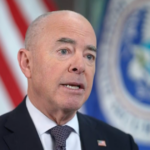By Dr. John Andrew Morrow
On December 21, 2018, Jayson Casper, a Cairo-based writer who covers the minority Copts, published an article titled “Covenantal Theology” in Christianity Today which poses a very important question: “Can Muhammad’s Ancient Promise Inspire Muslim-Christian Peace Today?”
The author commences by commenting upon the biblical progression of covenants, the Covenant of Abraham, the Covenant of Moses, the Covenant of David, and the Covenant of Jesus, and wonders whether Christians should embrace the Covenant of Muhammad.
You may be interested
Casper notes that the Covenant of the Prophet Muhammad with the Monks of Mount Sinai, known also as the Ashtiname, played a central role in the release of Asia Bibi, who spent eight years on death row in Pakistan on trumped up charges of blasphemy.
The journalist points out that judge Asif Khosa referenced The Covenants of the Prophet Muhammad with the Christians of the World, published by yours truly, in his verdict.
Rather than provide a one-sided perspective on the subject, Jayson Casper consulted with a cohort of scholars, some more reputable than others. He called upon Mustafa Akyol, an author I respect for his work on The Islamic Jesus: How the King of the Jews Became a Prophet of the Muslims. “To me, these covenants look convincing, at least in their general spirit,” said Akyol, “because they resonate with ecumenical themes already in the Qur’an.” He pointed out, however, that some experts dispute their authenticity and that most Muslims are unaware of them.
For Casper, these are “two serious challenges for the treaties” when, in reality, there are completely inconsequential. The fact that a few scholars have expressed skepticism carries little weight when compared to over one thousand years of scholarly consensus and historical implementation. Most American Christians have never heard of the Great Commission; however, this does not change the fact that this call to evangelize is found in the Gospel of Matthew (28:18-20). Nearly half of Americans believe that the Golden Rule is one of the Ten Commandments when it is not.
Only sixty percent of Americans know the commandment “thou shalt not kill.” Only forty-five percent could recall the commandment “honor thy father and thy mother.” Only thirty-four percent knew “remember the Sabbath.” And only twenty-five percent recalled “do not make false idols.” To say that the Covenants of the Prophet can have little impact in Islam because most Muslims do not know about them is the same as saying the Ten Commandments can have little impact in Christianity because most Christians cannot name them all.
Casper consulted with Professor Mustafa Abu Sway of al-Aqsa Mosque and al-Quds University in Jerusalem who acknowledged that the Prophet Muhammad made treaties with many communities, including the Christians of Najran. He noted, however, that one of the principles of textual criticism is that shorter documents are likely more authentic.
The Covenants of the Prophet have come down to us in short, medium, and long versions. It could be argued that shorter versions were expanded upon. It could, however, also be argued that the lengthy originals were shortened for the sake of concision or the sake of censorship by more oppressive rulers. The principle in question is problematic in an Islamic context since its earliest text, the Qur’an, is by far the longest. According to my assessment, the evidence suggests that the lengthy documents are the most authentic, namely, the Qur’an and the Covenants of the Prophet.
The journalist points out that Theophilos III officially endorsed the Covenants of the Prophet Muhammad with the Christians of the World and wonders if other Christians should consider doing so as well? Well, why not? There is nothing to lose and everything to gain. For Wilson Chowdhry, from the British Pakistani Christian Association, however, it may not make much difference in the matter of human rights. Such apathy is appalling. The Covenants of the Prophet saved a human life, that of Asia Bibi. They could potentially save more lives particularly since they now form part of a legal precedent. If the Covenants of the Prophet became incorporated into the legal system, in Pakistan and elsewhere, the short, medium, and long-term impact would be significant. What is more, if the Covenants of the Prophet became part of the educational curriculum in the Muslim world, the sentiments of billions of Muslims could undergo a paradigm shift.
Demonstrating questionable judgment, in my opinion, Jayson Casper contacted Dr. Mark Durie, and Anglican pastor from Australia, who described The Covenants of the Prophet Muhammad with the Christians of the World as “pious propaganda.” This is faintly comical coming from someone whose academic career centers on the production of “impious propaganda.” He claims that the history of Islam is one of religious discrimination. He also rejects the notion that Judaism, Christianity, and Islam are sister religions and claims that Muslims and Christians do not worship the same God. In so doing, he ignores the vast religious heritage shared by Judaism, Christianity, and Islam, and the fact that Arab Jews and Christians pray to God under the name Allah.
For Durie, Allah is not the God of the Bible. For him, Islam boils down to the barbaric Shariah Law in its extreme Salafi-Wahhabi-Takfiri forms, genital mutilation, lawful deception (taqiyyah), violent response to opposition, anti-Semitism, and suppression of religious freedom. He accuses the Prophet Muhammad of murdering many people while claiming that Jesus never killed anyone. Tell that to the billions of Amerindians, Africans, and Asians who were butchered in the name of Christ. Durie claims that terrorists are not defaming Islam but attempting to observe it. Durie neither writes nor speaks like a scholar or an academic but rather like a propagandist and hate-monger who seeks to demonize a major world religion and its adherents.
For Durie, the Covenants of the Prophet were forged by Christians who were seeking to improve their conditions under Muslim rule. He provides no proof whatsoever to support his claims. He finds it odd that a community of monks would receive a covenant that promises religious freedom to Christian women who marry Muslim men. He fails to realize that that the entire region was Christian at the time; not only St. Catherine’s Monastery. The Jabaliyyah Arab tribes were all Christians. The Ummah of Muhammad consisted of religious communities. Therefore, it was natural for him to communicate with the Christian leaders of similar communities when offering covenants of alliance.
Showcasing his arrogance and ignorance, Durie stated that he was not aware of any serious scholar who accepted the Covenants of the Prophet as genuine. Since they number in the hundreds, I cannot possibly list all of the authorities who stand behind the Covenants of the Prophet. If I exclude religious figures, and focus only on contemporary academics, the list includes: Dr. Omid Safi, Dr. Craig Considine, Dr. ‘Abbas Mirakhor, Dr. Jeremy Henzell-Thomas, Dr. Kevin Barrett, Professor Faisal Kutty, Ahmed El-Wakil, Dr. Bridget Blomfield, Dr. Hisham Ramadan, Dr. Muhammad-Reza Fakhr-Rohani, Dr. Aida Gasimova, Dr. Munawar Anees, Dr. Anna Maria Martelli, Arnold Yasin Mol, Dr. Joseph Hobbs, Dr. Gregory Stanton, Professor Amjad Khan, Dr. Dustin Byrd, Dr. Mohammed Elsanousi, Dr. Akbar Ahmed, Dr. Yousef Casewit, Zachary Markwith, Dr. Alan Godlas, Dr. Reza Shah-Kazemi, Dr. Cyrus Ali Zargar, Dr. Muqtedar Khan, Professor Emeritus Abdallah Schleifer, Dr. Azlan Shamsuddin, Dr. Mohamad Gemeaha, Dr. Sayyid Syeed, Safi Kaskas, Dr. Mohamed Hosny, Dr. S.M. Ghazanfar, Dr. Halim Rane, and scores of others. So, go ahead Dr. Mark Durie. Why don’t you send a letter to all of these supporters of the Covenants of the Prophet and tell them that they are not “serious scholars?” They might conclude that you are a clown.
According to Casper, I have poured my life into the Covenants of the Prophet and I ache for oppressed Christians which is within the realm of reality. However, he then makes a highly questionable claim. He alleges that I praise “the ideals of Islamic governance and the example of Hezbollah and the Ayatollah Khomeini.” This is a misrepresentation of my views. Regardless of the subject of my research, I praise the positive and I criticize the negative. I have pointed out in the past that the Iran provides religious liberty to Jews and Christians and ensures that they are represented in government. I have pointed out that the Hezbollah works closely with its Christian constituents and that the militia played an active part protecting the Christians of Syria from the terror of ISIS. But this does not mean that I am a follower of the Iranian regime or the Hezbollah, any more than I am a follower of the American government and the US Military. I am a scholar, an analyst, and a critic.
Casper then turns back to Chowdhry, the Pakistani Christian, who argues that Christians should not support me in spreading tolerant interpretations of Islam, a self-defeating attitude if there ever was one. For Chowdhry, Christians should focus on loving God, their neighbors, and their enemies. The problem, my dear Chowdry, is that your love will never conquer the hearts of the Takfiri-Wahhabi terrorists who wish to wipe your community off the map. Your minority Christianity will not soften their hearts. The only weapon against the Anti-Islam and Fake Islam of the Takfiris is Covenantal Islam. For Akyol, “The antidote to… bigotry… must come from Islam itself… The Supreme Court of Pakistan just showed us an example.” And that example, fellow Christians and Muslims, comes from the Covenants of the Prophet Muhammad.
In closing, while I disagree with some of the scholars that Casper consulted, I believe that his article could be the beginning of a real breakthrough to greater Christian appreciation of the Covenants of the Prophet.













